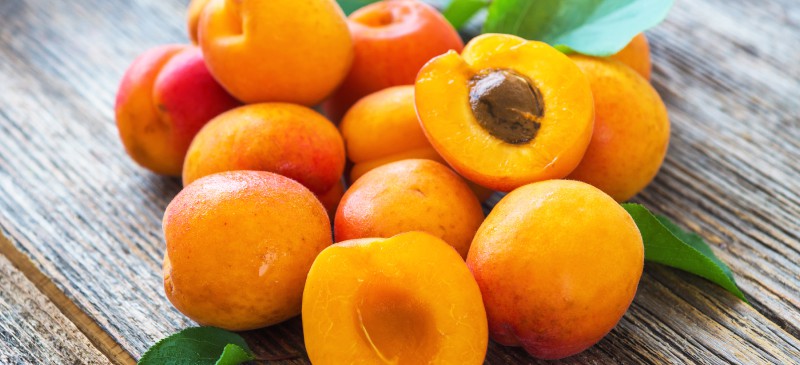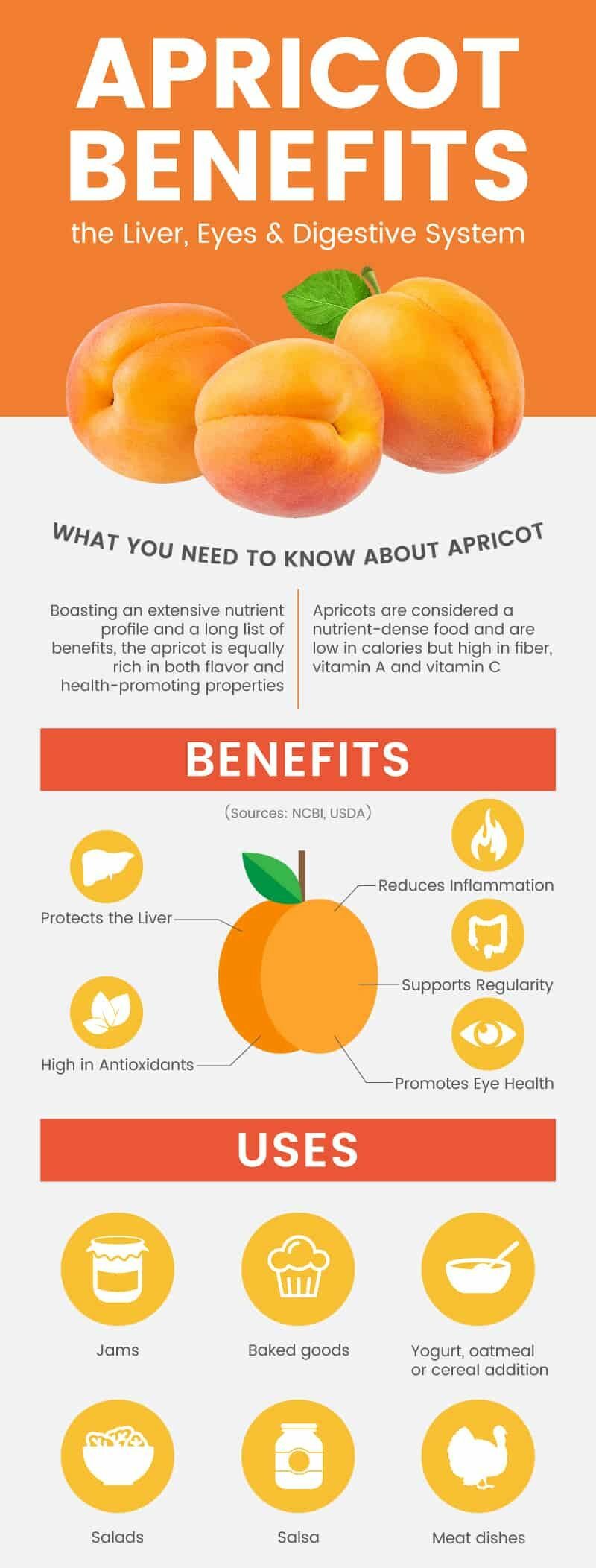This Dr. Axe content is medically reviewed or fact checked to ensure factually accurate information.
With strict editorial sourcing guidelines, we only link to academic research institutions, reputable media sites and, when research is available, medically peer-reviewed studies. Note that the numbers in parentheses (1, 2, etc.) are clickable links to these studies.
The information in our articles is NOT intended to replace a one-on-one relationship with a qualified health care professional and is not intended as medical advice.
This article is based on scientific evidence, written by experts and fact checked by our trained editorial staff. Note that the numbers in parentheses (1, 2, etc.) are clickable links to medically peer-reviewed studies.
Our team includes licensed nutritionists and dietitians, certified health education specialists, as well as certified strength and conditioning specialists, personal trainers and corrective exercise specialists. Our team aims to be not only thorough with its research, but also objective and unbiased.
The information in our articles is NOT intended to replace a one-on-one relationship with a qualified health care professional and is not intended as medical advice.
Apricot Benefits the Liver, Eyes & Digestive System
July 29, 2025

Known for its tart flavor and distinct apricot color, this nutritious fruit is good for so much more than just making jams or baked goods. Boasting an extensive nutrient profile and a long list of apricot benefits, it is equally rich in both flavor and health-promoting properties, just like apricot seeds.
Apricots are considered a nutrient-dense food and are low in calories but high in fiber, vitamin A and vitamin C. They have also been credited with a wide range of apricot benefits, from reducing inflammation to treating dry eyes and more.
Plus, they’re super versatile and can be eaten raw or used in baking and cooking, making them a great way to give your diet a healthy upgrade.
What are apricots?
The apricot is a type of edible fruit that comes from the apricot tree. It is a member of the Prunus, or stone fruit, genus of trees, which also includes plums, cherries, peaches, nectarines and almonds.
Believed to be native to either Armenia, China or Japan, apricots are now widely cultivated worldwide.
The history of the apricot remains controversial. Due to its scientific name, Prunus armeniaca (or Armenian plum), as well as its long history of cultivation in Armenia, many people believe that it actually originated there. Others argue that it was actually first found in either China or India thousands of years ago.
Regardless of their true origins, apricots have been a staple in many cultures worldwide for centuries. Egyptians, for example, commonly used them to make a traditional juice while English settlers used apricot oil in the 17th century to reduce inflammation and treat tumors.
Today, most commercial apricot production in the U.S. takes place on the West Coast. In fact, almost all apricots come from California, with a lesser amount coming from Washington and Utah.
Worldwide, Uzbekistan, Turkey, Iran and Italy produce the most apricots.
Nutrition facts
Raw apricots are low in calories but high in fiber, vitamin A, vitamin C and potassium, as well as several other important micronutrients. They also contain a good amount of carbohydrates, with most of the apricot calories coming from carbs rather than fat or protein.
A one-cup serving of raw apricot halves (about 155 grams) contains approximately:
- Calories: 74.4
- Total Carbohydrates: 17.2 g
- Fiber: 3.1 g
- Sugar: 14.3 g
- Total Fat: 0.6 g
- Saturated Fat: 0.04 g
- Polyunsaturated Fat: 0.1 g
- Monounsaturated Fat: 0.3 g
- Protein: 2.2 g
- Sodium: 1.6 mg (<1% DV*)
- Vitamin A: 149 mcg (17% DV)
- Vitamin C: 15.5 mg (17% DV)
- Copper: 0.1 mg (11% DV)
- Potassium: 401 mg (9% DV)
- Vitamin E: 1.4 mg (9% DV)
- Pantothenic Acid: 0.4 mg (8% DV)
- Niacin: 0.9 mg (6% DV)
- Vitamin B6: 0.1 mg (6% DV)
- Riboflavin: 0.06 (5% DV)
- Vitamin K: 5.1 mcg (4% DV)
- Manganese: 0.1 mg (4% DV)
- Magnesium: 15.5 mg (4% DV)
- Thiamine: 0.05 mg (4% DV)
- Folate: 14 mcg (4% DV)
- Iron: 0.6 mg (3% DV)
- Phosphorus: 35.6 mg (3% DV)
- Zinc: 0.3 mg (3% DV)
*Daily Value: Percentages are based on a diet of 2,000 calories a day.
In addition to the nutrients above, apricot also contains some calcium and selenium.
The dried apricots nutrition profile varies a bit. Dried apricots contain more than four times as many calories and carbohydrates but also provide a more concentrated amount of fiber, vitamin A, potassium, vitamin E and other micronutrients, and a serving size is typically around 30 to 40 grams as opposed to 155 grams.
Apricot benefits
Providing antioxidants, fiber and essential vitamins, apricot benefits extend to multiple areas of wellness, including:
1. Protects the liver
Besides being the largest internal organ in the human body, the liver is also one of the most important. It has a long list of functions, from producing proteins that help blood clotting to breaking down fats to produce energy.
Some research has suggested that the apricot fruit benefits the health of your liver and may even protect against liver disease.
In a study involving healthy volunteers, participants consumed 200 grams of apricot fruit daily for three weeks. Researchers observed a moderate reduction in total cholesterol, LDL and triglycerides, along with a significant increase in HDL levels in plasma.
These lipid improvements are meaningful because they correlate with overall liver metabolic function and reduced risk of hepatic steatosis and oxidative stress. The findings suggest that regular apricot intake may support liver health through mild lipid-lowering effects and enhancement of systemic antioxidant status.
Apricot benefits extend to helping prevent liver cancer as well, as shown in lab studies.
2. High in antioxidants
In addition to supplying a wide array of important micronutrients, apricot is also a high-antioxidant food. Antioxidants are compounds that protect against free radicals and prevent damage to cells. They may also reduce the risk of certain chronic conditions, like heart disease and cancer.
Apricots are loaded with carotenoids, a type of pigment with antioxidant properties. According to one study published in the Journal of Agricultural and Food Chemistry, apricots are especially high in carotenoids like beta-carotene, beta-cryptoxanthin and gamma-carotene.
3. Reduces inflammation
Inflammation is not necessarily a bad thing. In fact, it’s a perfectly normal response triggered by the immune system to keep out foreign invaders and protect the body from injury.
Chronic inflammation, on the other hand, can wreak havoc on your body and contribute to diseases like heart disease, diabetes and rheumatoid arthritis.
In a population-based study involving 1,358 asymptomatic Japanese adults, participants reporting high intake (at least three per day) of Japanese apricots were compared to those consuming fewer than three daily. Among individuals infected with H. pylori, the high‑intake group demonstrated significantly lower serum antibody titers, indicating reduced bacterial load.
Gastric mucosal biopsies from patients with H. pylori-related chronic atrophic gastritis revealed less neutrophil and mononuclear cell infiltration in the high-intake group and less extensive corporal atrophy, collectively suggesting suppressed active gastric inflammation and slower progression of gastritis.
Other anti-inflammatory foods include leafy green vegetables, beets, quince, broccoli, blueberries and pineapple.

4. Supports regularity
Apricots are loaded with fiber, providing about 3.1 grams in just one cup.
Fiber moves through the body undigested, helping add bulk to stool and prevent constipation. One analysis composed of five studies showed that increasing fiber intake helped increase stool frequency in patients with constipation.
Sweet apricot seeds, which are commonly sold as snack foods, can supply even more fiber. A 1/4-cup serving contains an estimated five grams of fiber, meeting up to 20 percent of your daily fiber needs.
In addition to apricots, other high-fiber foods that can help alleviate constipation include fruits, vegetables, legumes, nuts and seeds.
5. Promotes eye health
Apricots are an excellent source of vitamin A. Just one cup of apricots can knock out a good percentage of the vitamin A you need for the entire day.
Vitamin A plays a central role when it comes to eye health. In fact, vitamin A deficiency can result in symptoms like night blindness, dry eyes and vision loss.
Because fresh apricots are rich sources of beta-carotene as well (which the body converts into vitamin A), alongside lutein and zeaxanthin that also support macular function, the nutrients in the fruit may help protect against oxidative retinal damage and support visual health.
Other top vitamin A foods include beef liver, sweet potato, carrots, kale and spinach.
6. Can boost skin health
Apricot benefits include that it’s a rich source of vitamin C, vitamin E and beta-carotene. These nutrients play key roles in maintaining healthy, youthful-looking skin, including skin repair and regeneration.
Vitamin C supports collagen production, while vitamin A (as beta-carotene) helps protect against sun damage and premature aging. The natural antioxidants in this fruit may also help prevent oxidative stress in skin cells.
These antioxidants help fight oxidative stress and protect the skin from damage caused by sun exposure and pollution. The high vitamin A content also supports skin cell regeneration and may help reduce dryness, blemishes and signs of aging.
7. Enhances hydration
Thanks to their naturally high water content (around 85 percent), fresh apricots are a hydrating fruit that can help maintain fluid balance in the body. They also contain potassium, a key electrolyte that supports hydration by helping regulate fluid levels inside and outside of cells, making them a great snack for active lifestyles and warm weather.
Proper hydration is essential for healthy skin, digestion, energy levels and nutrient transport throughout the body.
8. May reduce blood pressure
Apricots provide potassium, a key mineral that helps regulate blood pressure by balancing sodium levels in the body. A potassium-rich diet may reduce the risk of hypertension and support cardiovascular health.
A higher potassium-to-sodium ratio in the diet may help relax blood vessels, reduce strain on the cardiovascular system and lower the risk of hypertension. Regular consumption of potassium-rich fruits like the apricot benefits overall cardiovascular health.
9. Supports gut health
Apricots are a natural source of both soluble and insoluble fiber, which promote a healthy digestive system by aiding digestion, regulating bowel movements and promoting a healthy gut microbiome.
Soluble fiber feeds beneficial gut bacteria, while insoluble fiber adds bulk to stool and helps prevent constipation. Eating apricots regularly may support smoother digestion and improved nutrient absorption.
10. May help relieve menopause symptoms
Apricots contain phytoestrogens, plant-based compounds that mimic estrogen in the body. These compounds may help support hormone balance and reduce symptoms associated with menopause, such as hot flashes and mood swings.
Other essential nutrients, like potassium and iron, in the apricot may help ease certain symptoms of menopause. The fruits’ antioxidant properties can also support hormonal balance and reduce inflammation, potentially helping with hot flashes, mood swings and fatigue in menopausal women.
11. Protects heart health
The combination of potassium, fiber and antioxidants in the apricot makes it a heart-friendly food. Fiber helps lower LDL (bad) cholesterol, potassium supports healthy blood pressure and antioxidants protect against oxidative stress that can damage blood vessels.
Rich in beta-carotene, vitamin C and flavonoids, the apricot benefits the heart since it can help protect the heart by reducing oxidative stress and inflammation in the arteries.
Apricot vs. peach
It’s easy to confuse apricots and peaches. Not only do they belong to the same family of fruits, but they share quite a few similarities in both their appearance and the nutrients that they provide.
Apricots are smaller than peaches and have yellowish-orange flesh covered with fuzz. Peaches, on the other hand, are slightly larger, can range in color from white to bright yellow or red, and like apricots are covered in fine hairs. Apricots tend to have a bit more of a tart taste that makes a great addition to baked goods and desserts.
Nutritionally speaking, the two fruits are very similar with a few minute differences. Gram for gram, apricots are slightly higher in calories, protein, carbohydrates and fiber. Apricots also contain more vitamin A and vitamin C, although the two contain comparable amounts of other micronutrients, like vitamin E and vitamin K.
That being said, both are jam-packed with vitamins, minerals and antioxidants, and including a few servings of each can be a healthy and nutritious way to give your diet a boost and take advantage of both apricot benefits and peach benefits.
How to eat
Apricots are easy to enjoy and full of flavor. If eating the fruit raw, simply wash it and feel free to consume the entire fruit, skin and all, to get all the apricot benefits.
You can use a spoon to help gently pull out the large stone, or apricot kernels, found in the middle of the fruit.
For a simple, healthy treat, try adding apricot to a bowl of Greek yogurt or even use it to top off your next bowl of oatmeal or cold cereal. Alternatively, try using either fresh or dried apricots in your cooking and baking recipes (like this Baked Brie recipe) to boost both the flavor and nutrient profile of your dishes.
If you’re feeling a little creative, there are plenty of ways to enjoy apricots other than just chowing down on the whole fruit. Some of the most common ways to use apricots include making apricot baked goods and sweets, as well as salads, salsas and even meat dishes.
Additionally, instead of going for the store-bought dried apricots, you can even try drying them at home. Simply use a dehydrator, or put them in the oven, bake at the lowest setting for 10-12 hours and enjoy!
Risks and side effects
Although apricot seeds are often enjoyed as a sweet snack, bitter apricot seeds can contain a large amount of amygdalin, a compound that can raise cyanide levels when consumed in excess. If eating apricot seeds, be sure to opt for the sweet variety to avoid potential toxicity.
Additionally, while dried apricots are high in many beneficial nutrients, they’re also high in carbohydrates and calories, which can lead to weight gain and a spike in blood sugar. Keep your intake in moderation, and go for fresh apricots whenever possible to avoid overdoing it.
Some people may also experience food allergy symptoms after eating apricots. If you suspect that you may have an allergy to apricots or have any adverse side effects after eating them, discontinue use and talk to your doctor.
Frequently asked questions
Are apricots good for you?
Yes, apricots are a nutritious fruit rich in fiber, antioxidants and vitamins A and C. Research shows apricot benefits skin, heart, digestive and immune health.
Can you eat apricot skin?
Absolutely. Apricot skin is edible and contains valuable nutrients and fiber, so there’s no need to peel them before eating.
Be sure to wash the fruit thoroughly to remove any pesticides or residues if it’s not organic.
When are apricots in season?
Apricots are typically in season from late spring through mid-summer, depending on your region. Look for fresh apricots between May and July in most parts of the U.S.
Are dried apricots healthy?
Yes, dried apricots are a concentrated source of nutrients, including iron, potassium and antioxidants. However, they are also higher in natural sugars, so portion control is important to optimize the dried apricot benefits.
Are dried apricots as healthy as fresh ones?
Dried apricots still contain many of the same nutrients as fresh ones, especially fiber and potassium. However, they are more calorie-dense and often higher in sugar, so portion control is important.
Can apricots be eaten daily?
Eating this fruit in moderation on a daily basis can provide apricot benefits, including improved hydration, better digestion and heart support. Just be cautious with dried apricots due to their higher sugar content.
How many apricots should you eat a day?
A typical serving is two to three fresh apricots. For dried apricots, a serving is usually about 1/4 cup. Eating apricots in moderation can help support a balanced diet.
Are apricots high in sugar?
Fresh apricots contain natural sugars but are relatively low on the glycemic index. Dried apricots are much higher in sugar by volume due to water loss, so enjoy them in small amounts.
What’s the difference between apricots and peaches?
While both are stone fruits, apricots are smaller, less juicy and have a slightly tart flavor. Peaches are larger, sweeter and fuzzier with more water content.
Can apricots help with digestion?
Yes, the fiber in apricots, especially when eaten with the skin, helps promote regularity and supports gut health by nourishing beneficial gut bacteria.
Are apricots good for skin?
Yes, the apricot benefits skin thanks to its antioxidants and vitamins that support skin elasticity, hydration and protection from environmental stressors.
Are apricots safe during pregnancy?
Apricots are generally safe during pregnancy and provide beneficial nutrients like iron, vitamin C and potassium. However, it’s best to consult a healthcare provider before consuming large quantities, especially in dried form.
Final thoughts
- Apricots are a stone fruit and are closely related to plums, cherries, peaches, nectarines and almonds.
- Raw apricots are low in calories but high in fiber, vitamin A and vitamin C. Dried apricot nutrition, on the other hand, contains a higher concentration of calories, carbohydrates, fiber and micronutrients.
- The apricot is also loaded with antioxidants and has been shown to reduce inflammation, support regularity, protect the liver and promote eye health.
- Because of its tart taste, apricots are incredibly versatile. They make a suitable addition to sweet and savory dishes alike and can be used in baked goods, entrees, jams and salsas.
- Enjoy the apricot in combination with a healthy, well-rounded diet to take full advantage of the multitude of health benefits it can provide.






